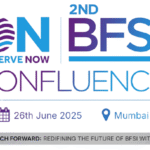UGC Unveils Revolutionary Curriculum Framework for PG Programmes Under NEP 2020

The University Grants Commission (UGC) has introduced a transformative curriculum and credit framework for postgraduate (PG) programmes as part of the National Education Policy (NEP) 2020.
This initiative aims to modernize higher education in India by offering students flexible academic pathways, interdisciplinary learning opportunities, and industry-aligned curricula. The framework seeks to align postgraduate education with global trends, equipping learners with the skills and expertise needed for emerging career opportunities.
A key highlight of the framework is its flexible structure, designed to accommodate students from diverse educational backgrounds. Those with a three-year Bachelor’s degree can pursue a two-year PG programme, with the second year dedicated to research. Students with a four-year Bachelor’s degree are eligible for a one-year PG programme, while integrated five-year Bachelor’s/Master’s courses offer a seamless transition from undergraduate to postgraduate studies.
The curriculum has been revamped to meet contemporary needs, focusing on cutting-edge fields such as Machine Learning, AI applications, healthcare, law, and other professional domains. These additions aim to prepare students for the demands of modern industries while fostering interdisciplinary learning. The updated credit system maps PG degrees to Levels 6, 6.5, and 7 of the National Higher Education Qualifications Framework (NHEQF). Features like multiple entry-exit points, credit transfers, and the Academic Bank of Credit system provide students with greater flexibility and mobility in their educational journey.
Another significant aspect of the framework is its emphasis on personalized and cross-disciplinary learning. Students can design their academic pathways by choosing courses across disciplines, promoting holistic development. Additionally, eligibility for PG programmes will depend on undergraduate performance and entrance exams, ensuring alignment with students’ academic focus and professional aspirations.
In response to the growing demand for flexible education, the framework supports expanded online learning options. Students can enroll in multiple degree programmes simultaneously, access quality education from remote locations, and diversify their skill sets. Furthermore, a groundbreaking feature allows students to convert relevant professional work experience into academic credits, bridging the gap between theoretical knowledge and practical expertise while reducing the time needed to complete degrees.
Advanced courses offer a blend of theoretical and practical learning, with research-focused modules encouraging innovation and critical thinking. To maintain academic integrity, the framework includes rigorous assessment methods, anti-plagiarism measures, and robust grading systems, ensuring quality education at every stage.
This comprehensive framework under NEP 2020 represents a bold step towards reimagining postgraduate education in India. By integrating modern academic practices and fostering a learner-centric approach, it aims to equip students with the tools necessary to thrive in an evolving global landscape.
















